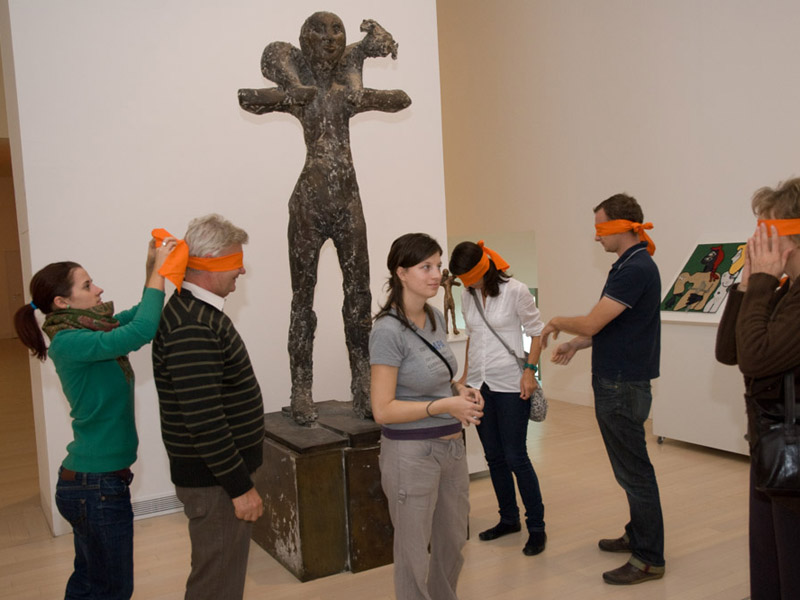Workshop on introducing contemporary art to people with special needs. What are the problems to be considered? Case studies of Hungarian museums.
This programme is in English. Admission free.
Pre-registration required at muzeumpedagogia@ludwigmuseum.hu
10.00 – 10.15 Introduction
10.15 – 11.00 What does accessibility for people with special needs mean in the context of a museum? Current situation at Hungarian and European museums. Expectations in the European Union. (Ranise Cécile PhD)
11.00 – 11.15 Coffee break
11.15 – 11.45 Example: Skanzen Museum (Hungarian Open-air Ethnical Museum)
How does Skanzen deal with the question of accessibility?
Postgraduate courses at Skanzen in different topics, for example: How can we receive people/ kids with special needs in the museum? (Zsuzsanna Szabó)
11.45 – 12.15 Example: Museum of Fine Arts Budapest
How does the Museum of Fine Arts deal with the question of accessibility? (Deme Edina)
12.15 – 13.15 Lunch
13.15 – 15.15 Example: Ludwig Museum Budapest
How does Ludwig Museum deal with the question of accessibility? (Rita Farkas and Henrietta Szira)
New initiative: Guided tour for the deaf/hearing impaired. (Sarolta Dobránovics, member of the Hungarian Federation of the Deaf)
New initiative: Guided tour for the blind/visually impaired (Márta Dr Tolnayné Csattos, member of the Hungarian Federation of the Blind and Partially Sighted)
New initiative: Guided tour for mentally retarded audience (Ágnes Onódi leader of the day-boarder home for mentally retarded adults)
15.15 – 15.45 Concert: Nem adom fel (rock-group of musicians with special needs)
15.45 – 16.00 Feedback, questions, individual case studies
16.00 – 16.30 Coffee break
16.30 – 17.30 Guided tour at the exhibition … on the eastern front

